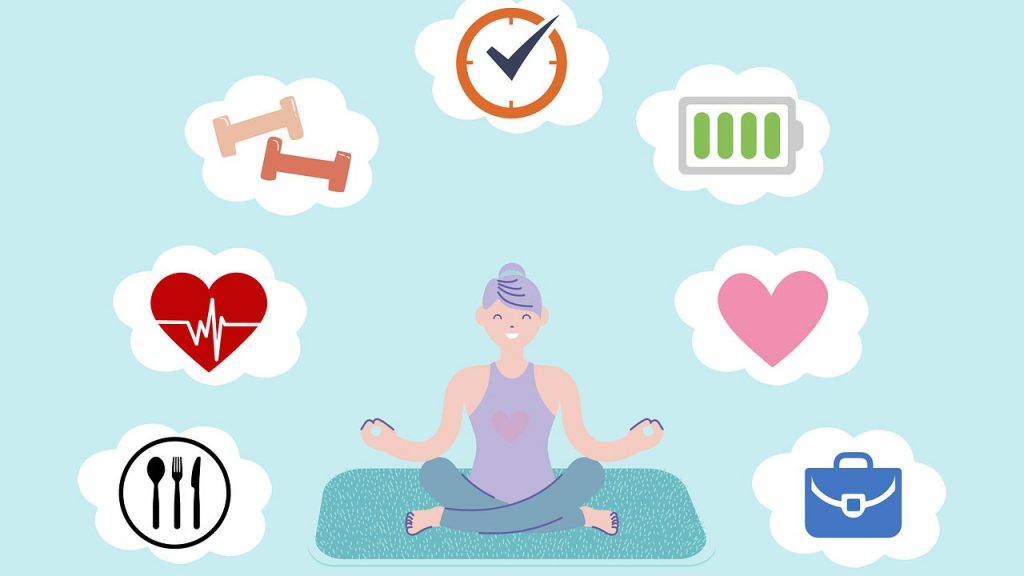Mental health is just as important as physical health, yet it’s often overlooked in our busy, fast-paced lives. Taking care of your mental well-being can improve your mood, increase resilience, and boost your overall quality of life. Whether you’re dealing with stress, anxiety, or simply looking to enhance your mental health, there are some incredible practices that can help. As the editor of StarAvis.com and an advocate for mental wellness, here are 10 unbelievable ways to improve your mental health.
1. Practice Gratitude Daily
Why It’s Powerful:
Gratitude has a profound impact on your mental health by shifting your focus from what you lack to what you have. It cultivates a positive mindset and helps reduce stress and anxiety.
How to Do It:
- Start a gratitude journal and write down three things you’re thankful for each day.
- Take a moment each day to reflect on the positive aspects of your life, even during tough times.
- Express gratitude to the people around you by sending a message or verbally acknowledging their support.
Pro Tip: Keep your gratitude journal by your bed and make it part of your morning or evening routine.

2. Engage in Regular Physical Activity
Why It’s Powerful:
Exercise releases endorphins, which are natural mood boosters. Regular physical activity not only improves your physical health but also significantly reduces symptoms of anxiety and depression.
How to Do It:
- Aim for 30 minutes of moderate exercise, such as walking, jogging, or cycling, most days of the week.
- Try activities like yoga or dancing if traditional workouts feel intimidating or unenjoyable.
- Make physical activity a social event by joining a fitness class or going for a walk with a friend.
Pro Tip: Find a physical activity that you enjoy and make it a regular part of your schedule for a sustained mental health boost.

3. Practice Mindfulness and Meditation
Why It’s Powerful:
Mindfulness helps you stay grounded in the present moment, reducing anxiety, stress, and negative thinking. Meditation practices enhance self-awareness and improve emotional regulation, helping you handle daily challenges with more clarity.
How to Do It:
- Set aside 5-10 minutes daily for a simple meditation practice. Apps like Headspace or Calm can guide you.
- Engage in mindful activities like mindful eating or walking, where you focus fully on the present experience.
- Practice deep breathing exercises whenever you feel stressed or overwhelmed.
Pro Tip: Start small and gradually increase your meditation time as you become more comfortable with the practice.
4. Limit Social Media and Screen Time
Why It’s Powerful:
Constant exposure to social media can lead to feelings of inadequacy, loneliness, and comparison, all of which negatively impact mental health. Taking breaks from screens allows your mind to recharge and reduces information overload.
How to Do It:
- Set daily limits on social media use with apps like Digital Wellbeing (Android) or Screen Time (iOS).
- Implement a digital detox by taking breaks from social media or going tech-free for a few hours or even a full day.
- Unfollow accounts that make you feel stressed, anxious, or inadequate.
Pro Tip: Replace social media scrolling with an activity that brings you joy, such as reading a book or going for a walk.
5. Cultivate Meaningful Relationships
Why It’s Powerful:
Positive social connections provide emotional support, reduce feelings of loneliness, and improve overall well-being. Meaningful relationships act as a buffer against stress and are key to maintaining mental health.
How to Do It:
- Prioritize spending quality time with friends and family, either in person or through virtual means.
- Seek out social activities that align with your interests, such as joining a club or community group.
- Nurture existing relationships by regularly checking in and being present during conversations.
Pro Tip: Schedule time to connect with loved ones, even if it’s just a phone call or a quick coffee catch-up.
6. Establish Healthy Boundaries
Why It’s Powerful:
Setting clear boundaries in your personal and professional life prevents burnout and emotional exhaustion. Healthy boundaries protect your mental space and ensure that you’re not taking on more than you can handle.
How to Do It:
- Learn to say no when something doesn’t align with your priorities or capacity.
- Communicate openly with others about your limits and what you need to maintain your well-being.
- Make time for self-care without feeling guilty.
Pro Tip: Practice saying “no” in low-stakes situations to get comfortable with setting boundaries when it really matters.
7. Focus on Sleep Hygiene
Why It’s Powerful:
Good sleep is essential for mental health. Lack of sleep can worsen symptoms of anxiety and depression and reduce your ability to handle stress. Prioritizing sleep improves mood, cognitive function, and emotional regulation.
How to Do It:
- Stick to a consistent sleep schedule, even on weekends.
- Create a relaxing bedtime routine, such as reading or taking a warm bath, to signal to your body that it’s time to wind down.
- Avoid screens and heavy meals at least an hour before bed to improve sleep quality.
Pro Tip: If you struggle with falling asleep, try using white noise machines or sleep meditation apps to help you relax.
8. Engage in Creative Outlets
Why It’s Powerful:
Creative expression allows you to process emotions, reduce stress, and improve your mood. Whether through art, music, writing, or crafting, engaging in creative activities provides an emotional release and boosts mental clarity.
How to Do It:
- Set aside time for creative hobbies that you enjoy, such as painting, playing an instrument, or writing in a journal.
- Try new creative outlets if you’re unsure what you enjoy, such as photography, pottery, or creative writing.
- Use creativity as a form of relaxation, not performance. It’s about the process, not the outcome.
Pro Tip: Don’t worry about being “good” at a creative activity—focus on enjoying the act of creating.
9. Develop a Growth Mindset
Why It’s Powerful:
A growth mindset helps you view challenges as opportunities for learning and growth rather than obstacles. Adopting this mindset reduces fear of failure and boosts resilience, improving overall mental well-being.
How to Do It:
- Reframe negative thoughts about setbacks by focusing on what you can learn from the experience.
- Replace fixed statements like “I can’t do this” with “I can’t do this yet.”
- Surround yourself with people who encourage growth and learning.
Pro Tip: Regularly challenge yourself to step out of your comfort zone and embrace new experiences that encourage personal development.

10. Seek Professional Support When Needed
Why It’s Powerful:
There’s no shame in seeking professional help when you need it. Therapy provides a safe space to explore your emotions, process experiences, and develop strategies for managing your mental health.
How to Do It:
- If you’re struggling with anxiety, depression, or any other mental health concerns, consider seeing a therapist or counselor.
- Explore different types of therapy to find the best fit, whether it’s cognitive-behavioral therapy (CBT), talk therapy, or mindfulness-based approaches.
- Reach out to a mental health professional when you feel overwhelmed or unable to cope on your own.
Pro Tip: Many therapists now offer online sessions, making it easier to access support from the comfort of your home.
10 Unbelievable Ways to Improve Your Mental Health
Improving your mental health is an ongoing journey that requires intentional habits, self-awareness, and the willingness to make small changes. By practicing gratitude, staying active, limiting social media, and cultivating meaningful relationships, you can enhance your mental well-being and lead a more fulfilling life. At StarAvis.com, we believe that taking care of your mental health is essential to living your best life, and these practices will set you on the right path.






